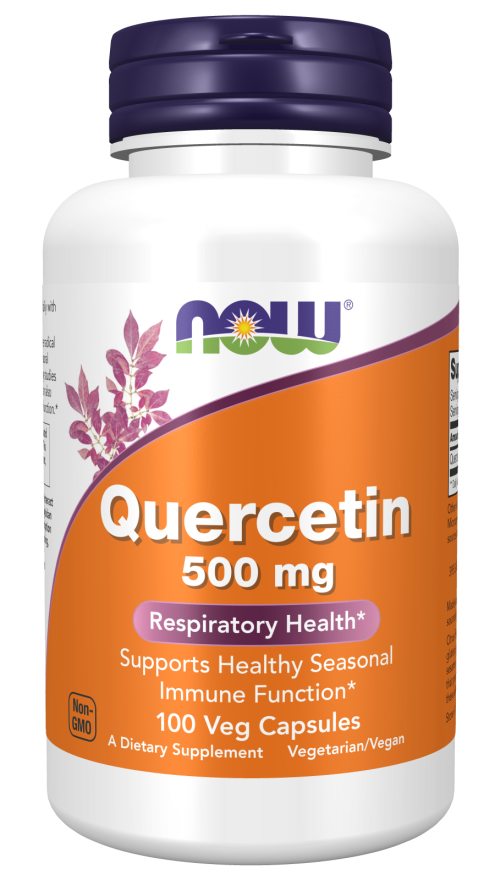Can I Take Quercetin At Night

The popularity of quercetin, a flavonoid found in many fruits and vegetables, has surged in recent years, driven by its purported antioxidant and anti-inflammatory properties. Many individuals are incorporating it into their daily routines, leading to questions about optimal timing: specifically, is it safe and effective to take quercetin at night?
This article delves into the current scientific understanding of quercetin, its potential effects on sleep, and expert recommendations regarding its nighttime use. We aim to provide a comprehensive, evidence-based overview to help readers make informed decisions about their quercetin supplementation.
What is Quercetin?
Quercetin is a naturally occurring pigment present in a wide variety of plant-based foods, including apples, onions, berries, and leafy greens. It is classified as a flavonoid, a group of plant compounds known for their antioxidant and anti-inflammatory properties.
Beyond its presence in food, quercetin is also widely available as a dietary supplement, often marketed for its potential health benefits. These benefits range from boosting the immune system to reducing inflammation and supporting cardiovascular health.
Potential Benefits and Side Effects
Research suggests that quercetin may offer a range of potential health advantages. These include antioxidant activity, helping to neutralize harmful free radicals in the body, and anti-inflammatory effects, potentially reducing inflammation associated with various conditions.
Furthermore, some studies suggest that quercetin may have antiviral and antibacterial properties, contributing to immune system support. The National Institutes of Health (NIH) acknowledges ongoing research into quercetin's potential benefits but emphasizes the need for more comprehensive clinical trials.
While generally considered safe for most people, quercetin can cause side effects, especially at high doses. These side effects may include headache, stomach upset, and tingling in the extremities.
It's also crucial to note that quercetin can interact with certain medications, such as blood thinners and some antibiotics. Always consult with a healthcare professional before starting quercetin supplementation, particularly if you have underlying health conditions or are taking prescription drugs.
Quercetin and Sleep: What Does the Science Say?
The relationship between quercetin and sleep is not yet fully understood, and research in this area is limited. Some studies suggest that quercetin may have a calming effect, potentially promoting relaxation and improving sleep quality.
However, other studies have shown no significant impact on sleep, and some individuals may even experience mild stimulation from quercetin. This variability in response highlights the need for more research to determine the specific effects of quercetin on sleep.
The European Food Safety Authority (EFSA) has not issued specific guidance on the timing of quercetin supplementation in relation to sleep. It's essential to consider individual responses and potential interactions with other substances before taking quercetin at night.
Expert Recommendations for Nighttime Use
Given the limited and sometimes conflicting evidence, expert recommendations regarding taking quercetin at night are cautious. Many healthcare professionals advise starting with a low dose and monitoring your body's response.
If you experience any sleep disturbances or other adverse effects, discontinue use and consult with your doctor. Dr. Emily Carter, a registered dietitian, suggests, "It's always best to err on the side of caution when introducing a new supplement, especially if you have a sensitive system."
Timing may also depend on the reason for taking quercetin. If you're using it to manage inflammation, taking it with dinner may be acceptable, but if you're unsure, daytime administration is generally recommended.
Things to Consider
Before taking quercetin at night, consider the following factors: your individual sensitivity to supplements, any existing sleep issues, and potential interactions with medications or other supplements. Keep a journal to record any changes you notice in your sleep patterns or overall well-being.
Always inform your doctor about any supplements you are taking, including quercetin. This is crucial to ensure your safety and prevent potentially harmful interactions.
Look for high-quality quercetin supplements from reputable brands that undergo third-party testing for purity and potency. This helps to ensure you are getting a safe and effective product.
Conclusion
While quercetin offers potential health benefits, the question of whether it's safe to take it at night remains complex. The current scientific evidence is inconclusive, and individual responses can vary.
Until more research is available, it's best to approach nighttime quercetin supplementation with caution. Consulting with a healthcare professional is essential to determine if it's appropriate for you, taking into account your specific health conditions and medications.
Ultimately, making informed decisions about your supplement regimen, including the timing of quercetin intake, is crucial for optimizing your health and well-being. Always prioritize safety and evidence-based practices.


















